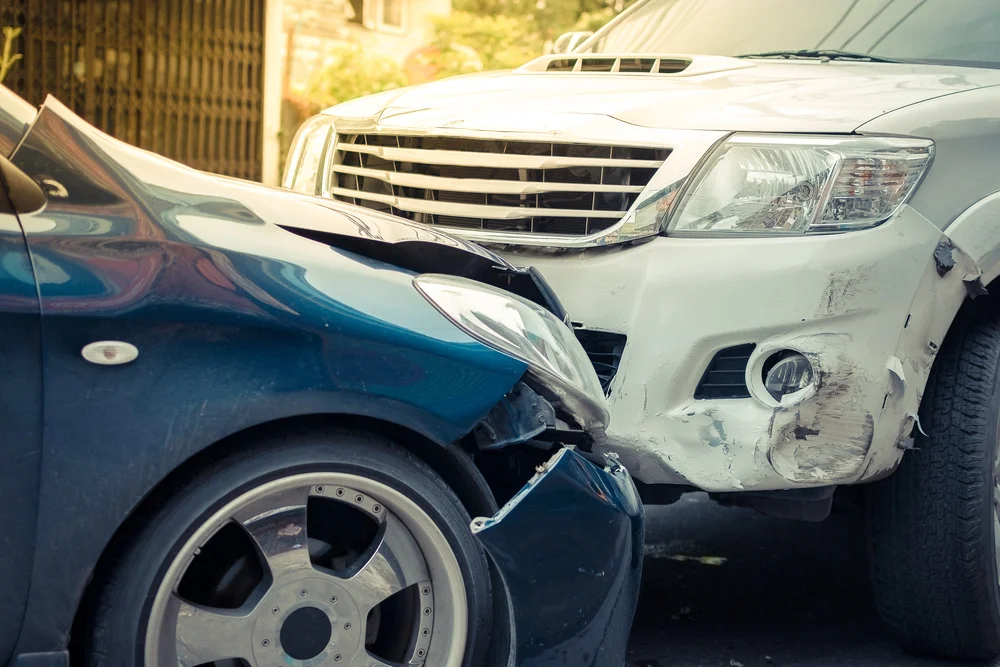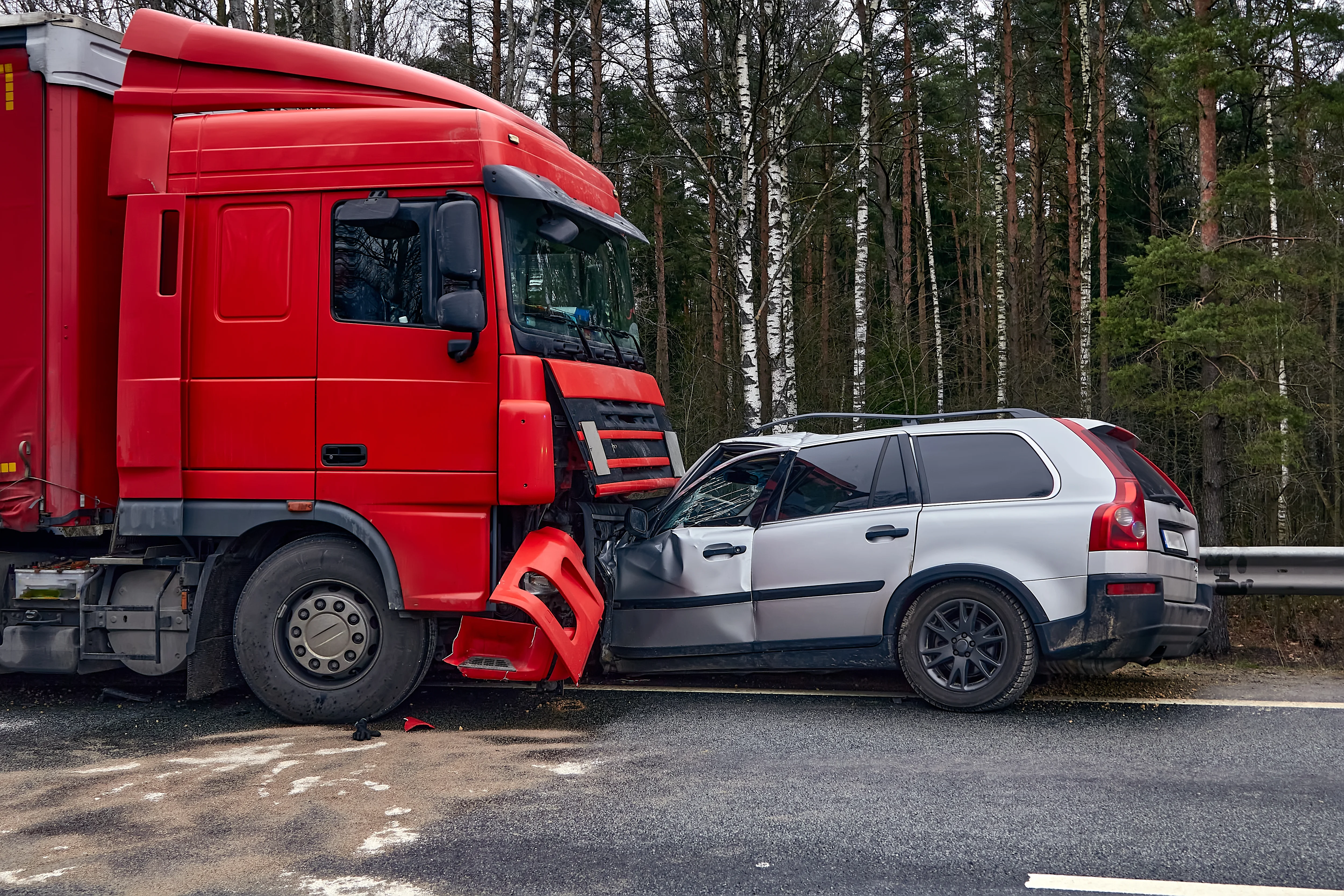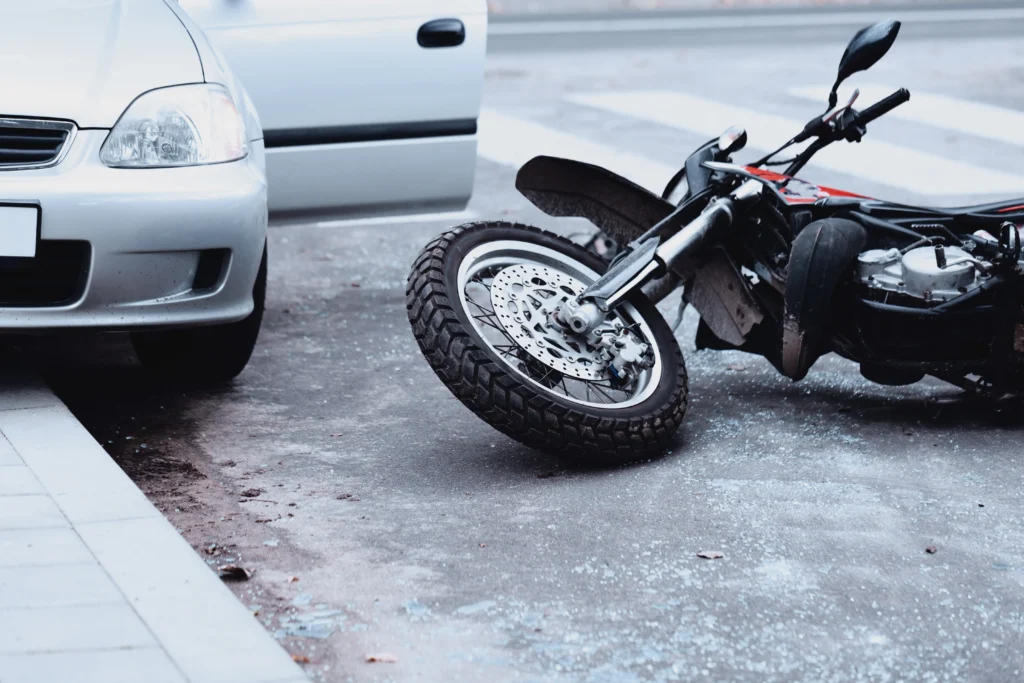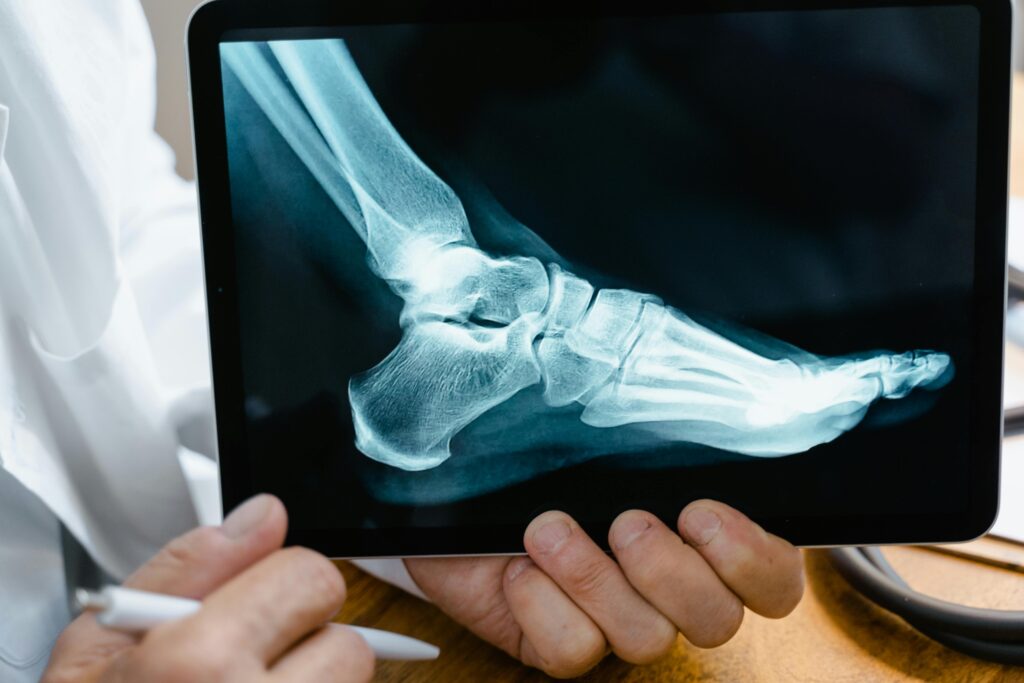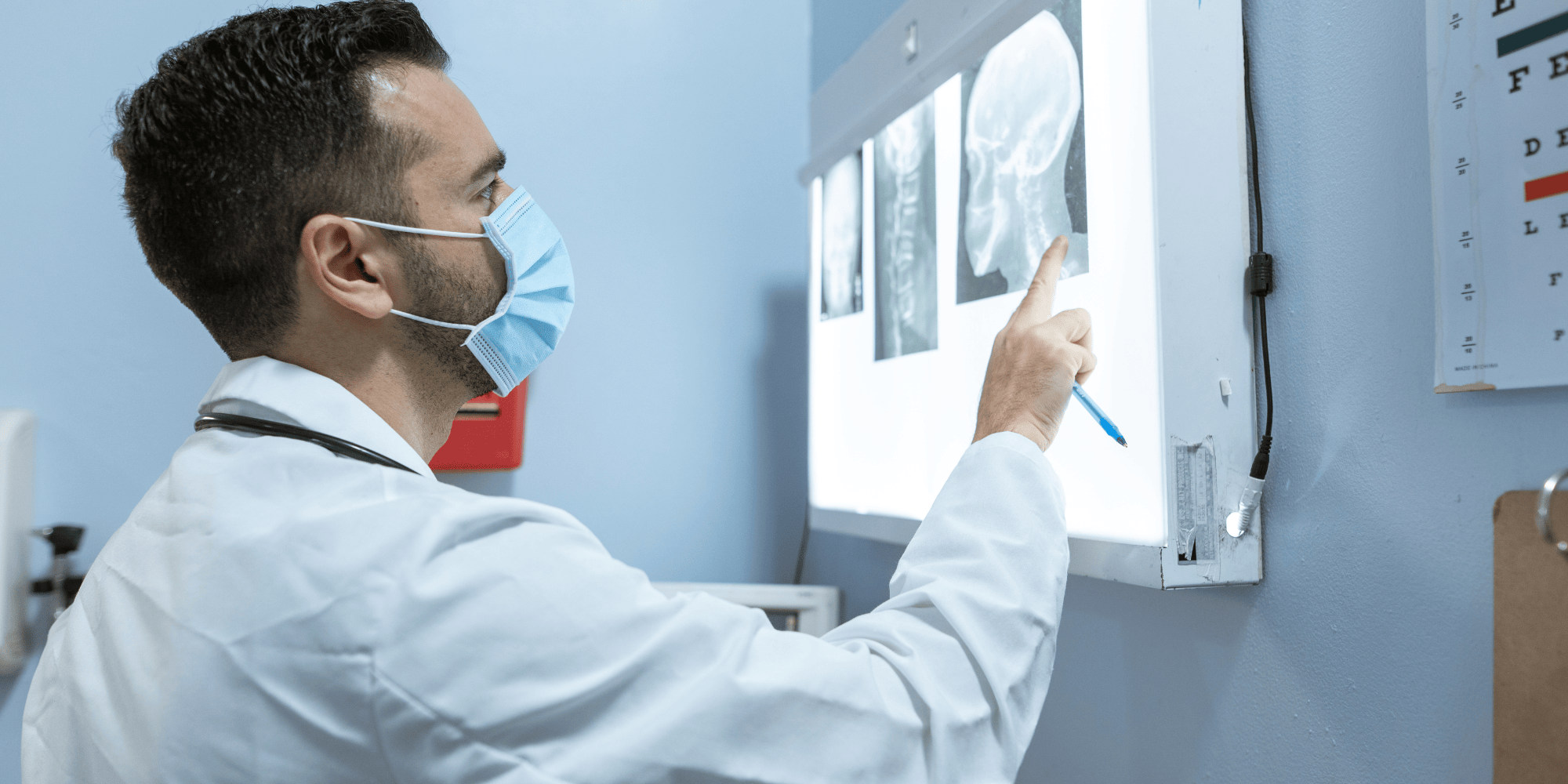Colorado Spine Injury Attorneys Advocating for Justice
Spinal cord injury can ruin lives instantly. Whether caused by an I-70 auto accident, a slip and fall in a Breckenridge parking lot, or a bicycle crash on the Cherry Creek Bike Path, these types of injuries often result in chronic pain, restricted mobility, and financial loss. At Levine Law, we represent Colorado spine injury accident victims and aggressively pursue the compensation that they deserve. Indeed, a study by the National Institute of Neurological Disorders and Stroke attests to just how important prompt treatment and legal action are in the aftermath of spinal injury.
With offices conveniently located to serve people from Aurora to Boulder and trial experience in all major Colorado jurisdictions, we have recovered more than $100 million for clients injured. Our legal team fights to hold negligent parties accountable and ensures every case is built with detailed evidence, compelling arguments, and a deep understanding of Colorado’s civil laws. If you’re facing life after a back or spinal cord injury in Colorado, don’t face it alone. The legal path to recovery starts with one call.
Below, we explain how these injuries occur, your legal options, and what distinguishes our approach for the communities we serve across the Centennial State.
Understanding the Life-Altering Impact of Spinal Injuries Across Colorado
Suffering a Colorado spine injury can quickly unravel the life you’ve built. From skiing injuries in Summit County to traffic crashes on Highway 36, spinal trauma leaves victims grappling with more than just physical pain. It disrupts careers, separates families from routine activities, and often leads to long-term medical care and emotional turmoil. In a state like Colorado, where mobility, recreation, and community are deeply valued, the consequences of back injuries can feel even more severe.
Common Types of Spine Injuries From Colorado Accidents
Spinal injuries vary widely depending on the type of trauma and how it occurs. Whether from a fall on icy sidewalks in Boulder or a T-bone collision on Alameda Avenue in Denver, victims experience a range of neurological and structural complications. These injuries are often progressive, meaning symptoms worsen without prompt and effective care. Understanding the medical terminology and long-term prognosis is essential to presenting a full-value injury claim.
Herniated Discs and Lumbar Compression Injuries
A herniated disc occurs when one of the spinal discs between vertebrae becomes displaced or ruptures under pressure. Victims frequently suffer from nerve impingement, leading to sciatica, muscle weakness, or burning pain. These injuries are common in rear-end crashes at lower speeds, workplace accidents involving lifting, or even unexpected slip and falls at ski lodges. The Cleveland Clinic notes that herniated discs are one of the most prevalent back injuries requiring prolonged treatment and physical rehabilitation.
Treatment often includes steroid injections, chiropractic adjustments, or minimally invasive surgery. However, when left untreated, herniated discs can lead to permanent mobility issues. Victims may miss months of work or face job reassignment due to lifting restrictions and chronic pain.
Thoracic and Cervical Vertebrae Fractures
Fractures of the vertebrae are among the most dangerous spine injuries due to their proximity to the spinal cord. High-impact trauma such as falls from construction scaffolding in Denver’s RiNo District or snowboarding accidents in Telluride often cause compression fractures, burst fractures, or dislocations. These injuries can result in severe pain, spinal instability, and, in many cases, paralysis.
The American Academy of Orthopaedic Surgeons explains that spinal fractures can require bracing, surgery, and lengthy hospitalization. Victims frequently need full-time care and face obstacles returning to recreational or professional activities, especially in physical trades or active lifestyles common in Colorado.
Spinal Cord Injuries Leading to Neurological Impairment
Spinal cord injuries occur when damage extends beyond the vertebrae into the spinal column itself. These injuries can be classified as complete or incomplete. Complete injuries often result in paraplegia or quadriplegia, while incomplete injuries may still allow some sensory or motor function. In Colorado, such trauma frequently results from rollover crashes on mountainous roads like Loveland Pass or collisions involving commercial trucks on I-25.
According to a study by the University of Washington Medical Center, spinal cord injuries require lifelong medical monitoring and adaptive technologies. Victims must often rely on wheelchairs, home modifications, and full-time caregiving, all of which increase the financial burden.
Long-Term Consequences of Spine Injuries for Colorado Residents
Living with a spine injury affects every corner of life. It isn’t just about medical bills and rehabilitation. These injuries make it harder to enjoy the very aspects of Colorado that define our communities. Whether hiking Mount Sanitas, strolling through Old Town Fort Collins, or simply commuting through Denver traffic, the loss of independence is felt daily.
Disruption of Work and Financial Stability
Many spine injury victims are forced to reduce hours or leave the workforce entirely. Teachers, electricians, warehouse workers, and hospitality employees are particularly vulnerable. When you cannot sit, stand, or lift for extended periods, continuing in your role becomes impossible. Even white-collar professionals may struggle with focus or concentration due to chronic pain or medication side effects.
The U.S. Department of Labor reports that spinal injuries are among the most frequent causes of job loss due to permanent impairment. Many families across Colorado find themselves navigating workers’ compensation, disability benefits, or long-term unemployment, creating additional stress in the aftermath of injury.
Psychological and Emotional Toll of Spinal Trauma
Physical pain is only one part of the battle. Victims often develop depression, anxiety, or post-traumatic stress disorder after spinal trauma. This is especially true for active Coloradans who previously participated in outdoor recreation or physically demanding careers. Losing independence, facing daily limitations, and dealing with the uncertainty of recovery can erode emotional well-being.
A peer-reviewed study in the Journal of Spinal Cord Medicine found that nearly 40 percent of spinal injury victims experience clinically significant depression within the first year of injury. Many also face isolation due to mobility limitations, loss of work, and lifestyle changes.
Loss of Mobility and Independence in Everyday Life
Injury-related mobility loss means daily tasks become obstacles. Activities like shopping at Trader Joe’s on Colorado Boulevard, navigating the CU Boulder campus, or simply parking at the Red Rocks Amphitheatre can turn into overwhelming challenges. Many homes in Colorado are not wheelchair accessible, forcing expensive renovations or relocation. Public transportation systems may not offer the flexibility or independence needed by those with spinal damage.
These challenges create significant costs, both emotionally and financially. From stair lifts to accessible vehicles, spinal injury survivors often require adaptations to maintain independence, all of which should be considered in a full-value personal injury claim.
Spinal injuries change everything. The impact ripples through every part of life, and the recovery is long and expensive. Victims of Colorado spine injury deserve more than sympathy. They deserve justice, accountability, and full compensation for what was taken from them.
Know Your Rights After a Colorado Spine Injury and Take Legal Action Now
If you suffered a Colorado spine injury, state law gives you the right to pursue compensation for your medical expenses, lost wages, and long-term suffering. From Aurora to Grand Junction, every injured person in Colorado deserves full legal protection. Yet, asserting those rights requires swift action and legal knowledge. Many victims miss key deadlines or settle for far less than they deserve. According to the Colorado General Assembly, state laws surrounding personal injury impose strict limits and rules that can directly affect your claim. Understanding these legal protections ensures you can make informed decisions during your recovery.
Colorado’s Time Limit to File a Spine Injury Lawsuit Is Short
Time matters more than you think after a spine injury. Colorado law places a strict window on how long you have to bring a legal claim. This rule is known as the statute of limitations, and if you miss it, you lose your right to compensation entirely.
The Two-Year Civil Statute of Limitations Applies in Most Cases
Most personal injury claims in Colorado must be filed within two years from the date of the accident. That includes spine injuries caused by slips, falls, workplace incidents, or premises liability cases. However, if your injury occurred in a vehicle crash, the time limit extends to three years.
The Colorado Judicial Branch outlines these deadlines clearly. If you fail to file before the clock runs out, the court will likely dismiss your claim regardless of how serious your injury is. That is why you must act fast and document your injury right away.
Claims Against Government Entities Require Faster Action
If your back injury occurred on city, county, or state property in Colorado, you may only have 180 days to file a formal notice of claim. For example, a fall at the Denver County Courthouse or a spinal injury caused by a city bus on Broadway would require quicker action. Missing that early deadline eliminates your right to pursue the case under state immunity laws.
This shorter timeframe highlights the need to consult a law firm familiar with local government tort claims immediately. Victims in cities like Lakewood or Fort Collins often don’t realize these rules exist until it’s too late.
Proving Negligence Is the Key to Winning Compensation
To recover financial damages for a Colorado spinal injury, you must prove that someone else acted negligently and caused your harm. Negligence means someone failed to use reasonable care, and that failure led to your injury. This might be a careless driver, a property owner who ignored a hazard, or a business that violated safety codes.
Evidence Builds the Foundation of Your Legal Claim
Strong evidence transforms a good case into a winning case. Medical records, witness statements, accident reports, and photos of the scene all help prove that negligence caused your injury. Police reports from agencies like the Colorado State Patrol or Denver Police Department also support your version of events.
The National Highway Traffic Safety Administration states that well-documented crash evidence can strengthen back and spine injury claims dramatically. Early investigation matters. That is why we move quickly to secure all relevant proof and prevent it from being lost or erased.
Colorado Follows Comparative Fault Rules That Can Reduce Damages
Colorado uses a modified comparative negligence standard. This means your financial recovery will be reduced by your percentage of fault. If you are 20 percent responsible for your accident, your compensation will be reduced by that amount. However, if you are found more than 50 percent at fault, you will recover nothing.
This rule becomes especially important in intersection crashes or complex premises liability cases. Insurance companies often try to shift blame onto victims to reduce their payouts. We fight hard to protect your rights and prove that others bear the majority of the responsibility.
Your Right to Recover Damages Includes Future Costs
Many spinal injuries in Colorado require years of rehabilitation, surgeries, and adaptive care. State law allows you to recover not only for current expenses, but also for future losses.
Future Medical Treatment and Equipment Costs Are Recoverable
If your doctors expect you will need spinal fusion surgery, physical therapy, or a mobility aid like a wheelchair or stairlift, those projected expenses can be part of your claim. Colorado courts recognize the lasting effect of spinal trauma and allow for the recovery of reasonably certain future medical costs.
Studies by the Agency for Healthcare Research and Quality confirm that spinal injury treatment ranks among the most expensive of all trauma-related conditions. We work with care planners and economists to present a complete picture of what your recovery will require.
Loss of Earning Capacity Is Part of a Full Compensation Claim
Many spinal injury victims in Colorado cannot return to their prior careers. Even if they return to work in some capacity, they often earn less than they did before. In personal injury law, this is known as diminished earning capacity. You have the right to recover money for these future financial losses.
Whether you were a bartender in LoDo, a ski instructor in Steamboat Springs, or a contractor in Pueblo, we calculate the income you would have earned had the injury not occurred. These damages are vital to ensuring your financial stability long-term.
Understanding your rights under Colorado law is the first step toward reclaiming control after a spine injury. We help clients across the state assert those rights and build strong claims that hold negligent parties accountable. Let our legal team protect your future, starting today.
Why Local Legal Representation Strengthens Colorado Spine Injury Claims
Choosing an attorney who understands Colorado’s legal systems, terrain, and traffic patterns can significantly improve your chances of success after a Colorado spine injury. Victims across Denver, Fort Collins, and Grand Junction face unique regional challenges. Whether your injury occurred on icy sidewalks in Durango or during a ski crash in Vail, local experience matters. Attorneys based in Colorado know how to move quickly, respond to local courts, and investigate cases with community-specific insight. According to the University of Denver Sturm College of Law, familiarity with local rules and judges often leads to more efficient outcomes and stronger negotiation positions.
Understanding Colorado Traffic and Terrain Helps Build Stronger Cases
Colorado’s roads, weather conditions, and regional layout create hazards most out-of-state attorneys simply don’t understand. Local attorneys recognize the risk of black ice in winter months, the congestion on I-70 through the Eisenhower Tunnel, and the danger of construction zones along US 36 near Boulder.
Mountain Roads and Winter Weather Increase Accident Risk
Drivers in Colorado frequently travel through high-elevation passes where snow, ice, and fog reduce visibility and traction. Spinal injuries often result from spinouts, rear-end crashes, or rollovers in areas like Berthoud Pass or Monarch Mountain. Understanding these roads allows a Colorado-based legal team to recreate the crash with more accuracy and anticipate the arguments insurers will raise.
The Colorado Department of Transportation reports that crashes spike during winter months, especially along I-70 and I-25. Attorneys familiar with these corridors can act quickly to request road condition reports, weather data, and traffic camera footage.
Local Experience Reveals Patterns of Negligence in Colorado Communities
Some intersections and highways in Colorado see repeat incidents due to poor design, traffic volume, or lack of enforcement. Local attorneys often know where and why these accidents happen. For example, serious collisions regularly occur at Federal Boulevard and Alameda Avenue in Denver or at Powers Boulevard in Colorado Springs.
This insight allows your legal team to investigate whether local authorities, property owners, or businesses failed to prevent known hazards. It also positions your claim more strategically when negotiating with insurance adjusters or preparing for trial.
Familiarity With Colorado Courts and Judges Supports Stronger Advocacy
Every court system in Colorado operates slightly differently. Filing procedures, case management styles, and even judge preferences vary by county. Attorneys with experience in your jurisdiction can guide your claim with more precision and efficiency.
Knowing Local Court Rules Saves Time and Reduces Mistakes
From the Denver County Court to the 4th Judicial District in El Paso County, each courthouse has unique administrative requirements. A law firm that practices across Colorado knows these nuances and avoids the common filing mistakes that can delay or jeopardize your case.
Understanding how to work with each court’s clerks, case managers, and judges also helps maintain momentum. That means fewer delays and faster resolutions for injured clients who urgently need financial support.
Relationships With Medical Providers and Investigators Matter
Spine injury claims require collaboration with physical therapists, radiologists, and diagnostic imaging centers. Local attorneys often have existing relationships with these providers, allowing for faster access to critical records and billing documentation.
For example, we regularly work with imaging centers in Aurora, surgeons in Boulder, and physical rehabilitation clinics in Lakewood. This coordination streamlines the process of proving the severity and long-term impact of your Colorado spine injury.
Proximity Makes a Difference in Case Response and Support
Being local means being available. Whether you live in Highlands Ranch, Fort Collins, or Grand Junction, our legal team can meet you in person, investigate the scene directly, or attend hearings without delay. That level of support is difficult to match from out-of-state law firms.
Quick Access to Accident Scenes Preserves Key Evidence
After a spine injury, time-sensitive evidence like debris, tire marks, and surveillance footage can vanish quickly. Having a legal team nearby means we can be on-site fast to photograph conditions, speak with witnesses, and collect video footage from surrounding businesses.
Local presence also allows us to follow up in person with medical providers, employers, or property managers who may be involved in the case.
In-Person Meetings Help Build Trust and Improve Communication
Spinal injury cases often last months or even years. Working with a local team allows for face-to-face meetings and regular updates. This improves communication, builds stronger attorney-client relationships, and helps you stay informed throughout the legal process.
Ultimately, choosing a Colorado-based law firm gives you more than convenience. It gives you a home-field advantage. With deep knowledge of Colorado roads, courtrooms, and communities, we build spine injury claims that stand up to scrutiny and maximize results. Let us use our local experience to protect your rights and fight for the compensation you deserve.
Contact Our Colorado Spine Injury Attorneys Today and Protect Your Future
If you or someone you love suffered a Colorado spine injury, do not wait to get the legal support you need. Every day that passes puts your financial recovery and legal rights at risk. At Levine Law, we take immediate action to investigate the facts, preserve vital evidence, and hold negligent parties accountable. With over $100 million recovered for injury victims across Colorado, we know what it takes to win these complex cases.
Our firm represents clients across the state, from Denver to Colorado Springs, Boulder to Grand Junction. Whether your injury happened in a downtown intersection or on a rural highway, we will fight to get you the full compensation you deserve. We never charge upfront fees, and you pay nothing unless we win.
Call us now at 303-835-4910 or visit www.carcrashlawyercolorado.com to schedule your free consultation. Our team is ready to listen, answer your questions, and start building your claim today.
Do not let delays, insurance companies, or uncertainty keep you from getting justice. Let Levine Law stand by your side and fight for your future.
Practice Areas
Trust Levine LawWith Your Personal Injury Claim
If you or a loved one have been injured, Levine Law will fight for you every step of the way. We will give our all to secure the compensation you rightfully deserve.
Contact usfor a free consultation.
Phone: (303) 951-4810

